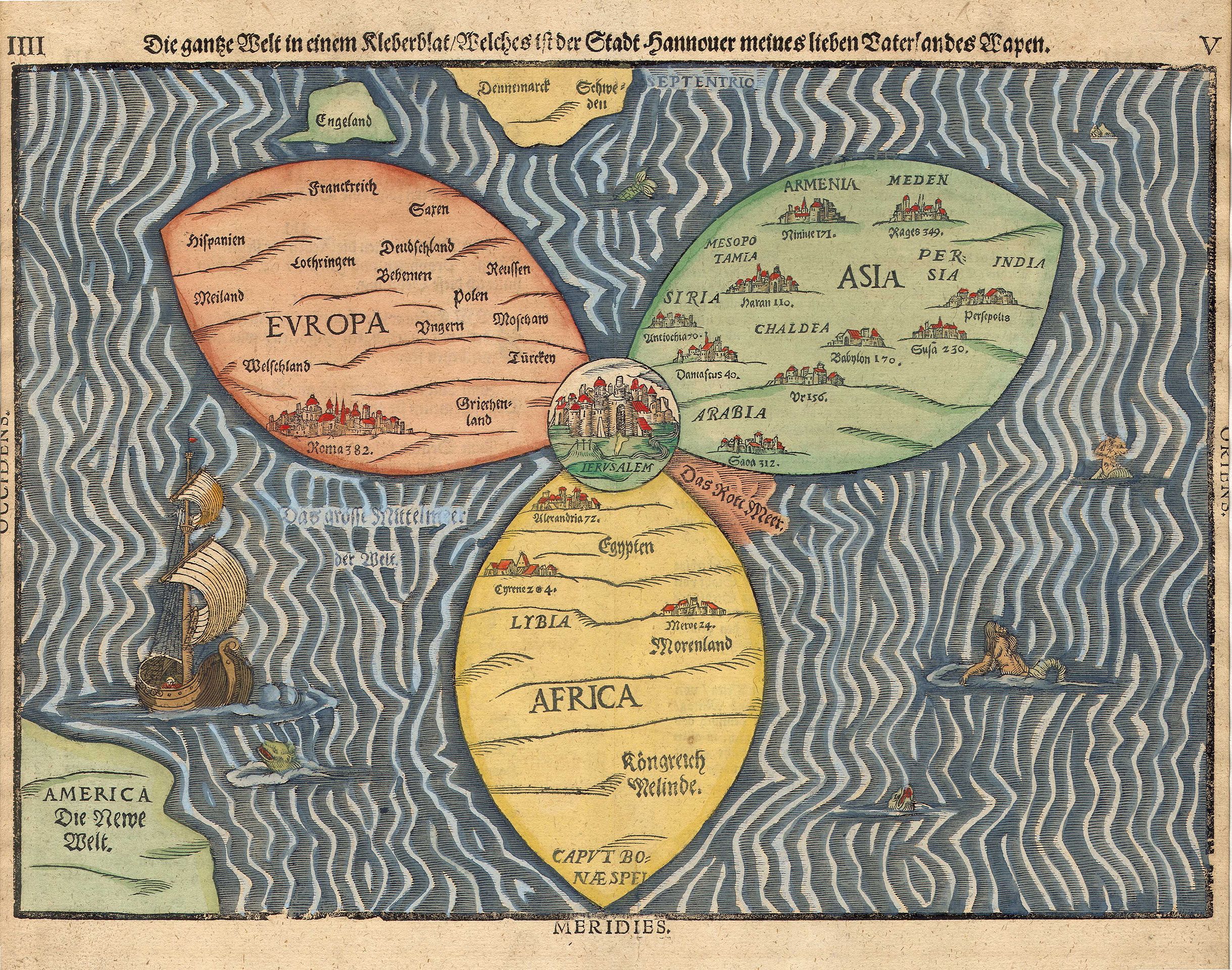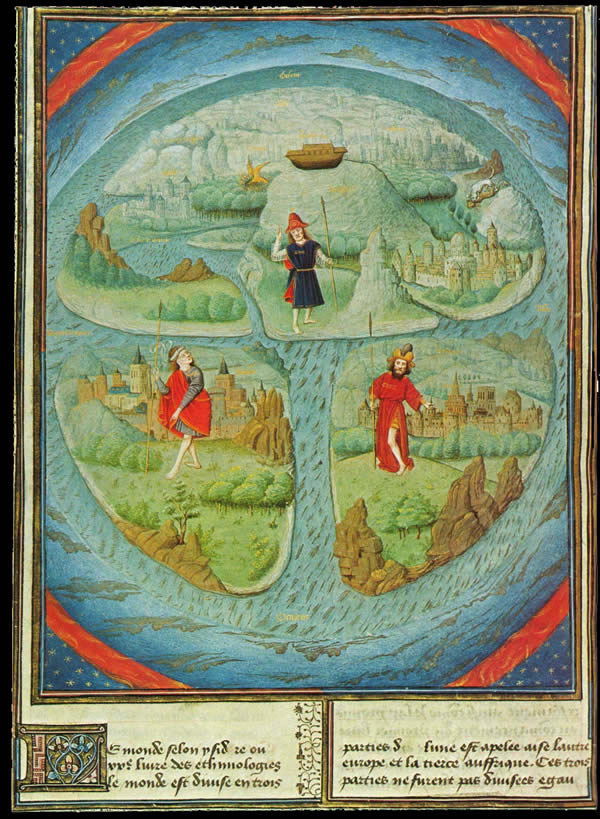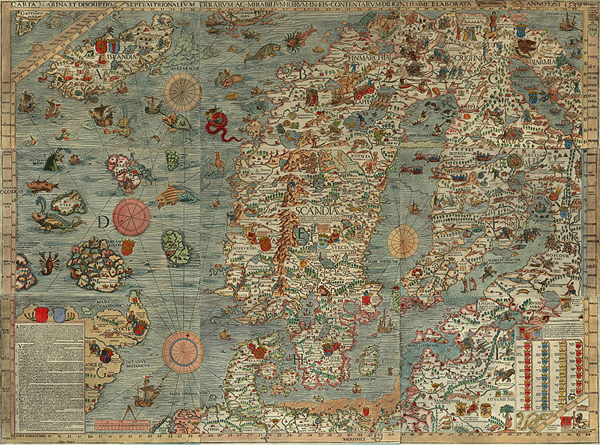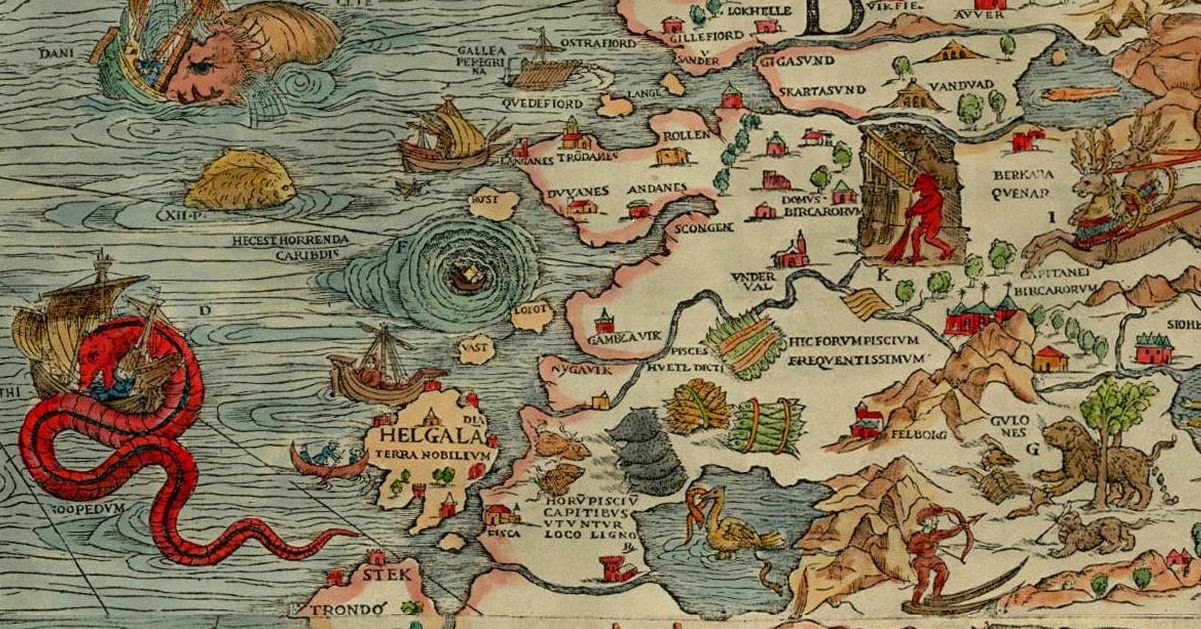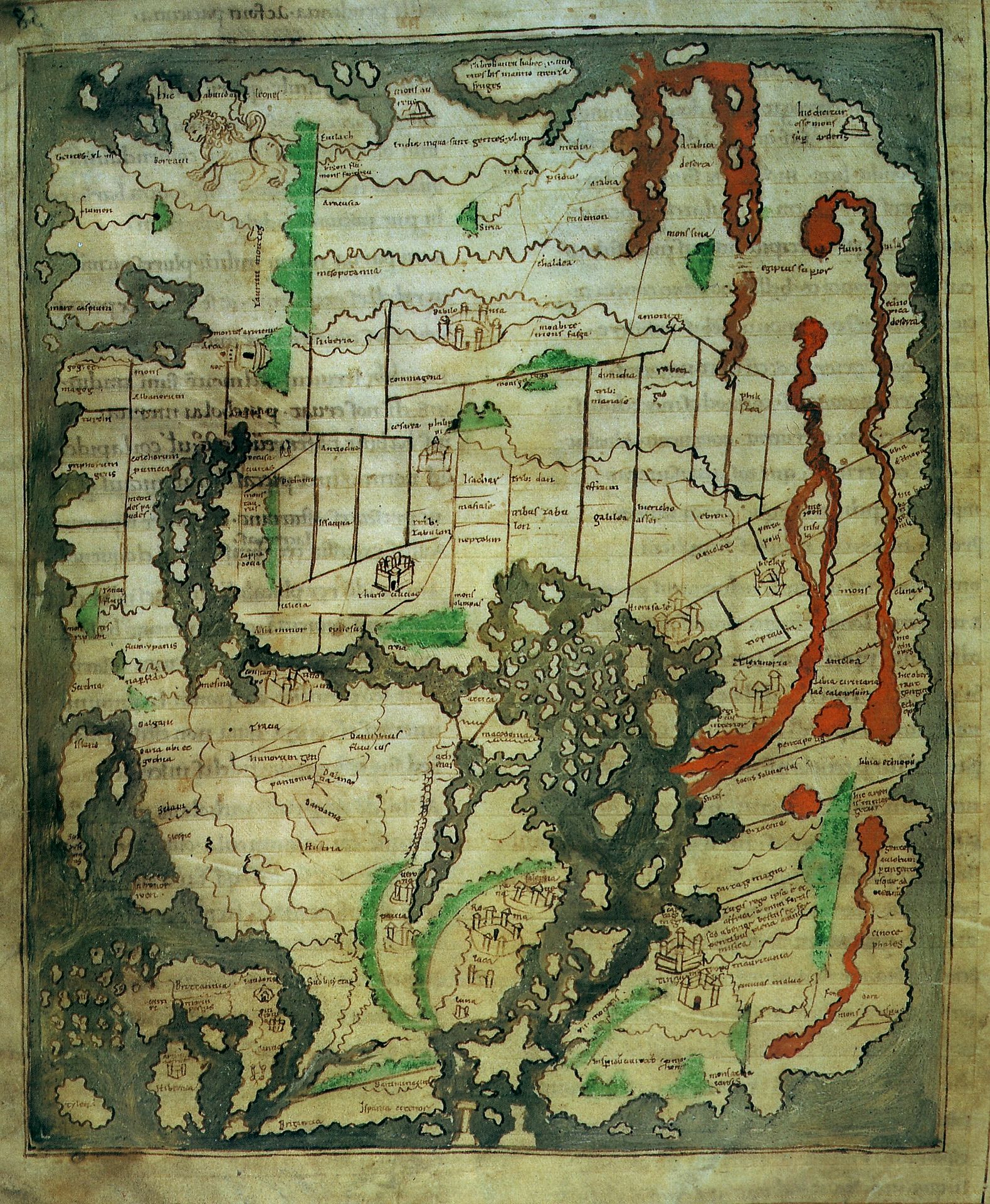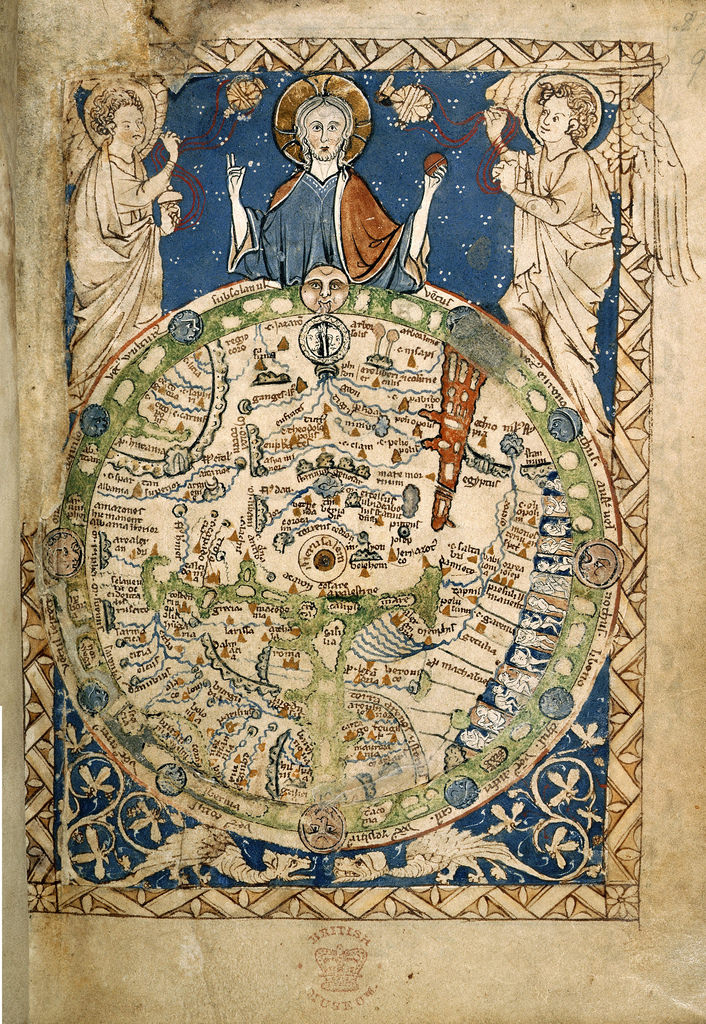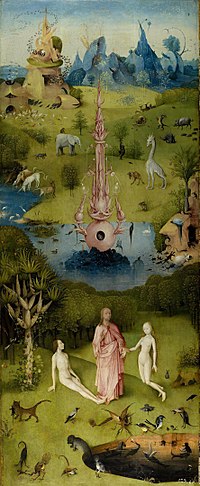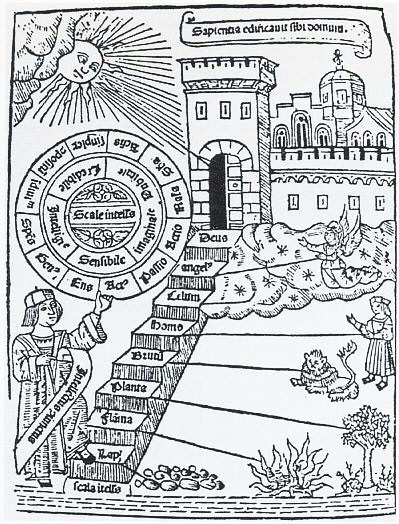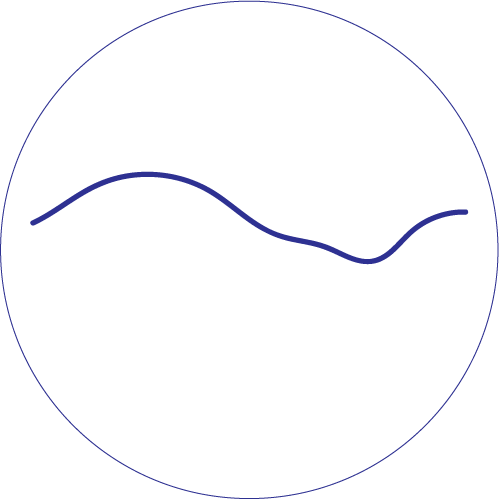THE MONASTERY / CHRISTENDOM / THE MIDDLE AGES [elizabeth kaye cook]
T H E M O N A S T E R Y / C H R I S T E N D O M / T H E M I D D L E A G E S
You are the mapmaker. You are a bag of bones and blood, a heartbeat in a cathedral of ribs.
You are here. In the monastery, your steps echo as you walk the cool stones. You skitter on the crust of the earth and consider your place in it.
The medieval monks and mapmakers know — you find yourself in relationship to something, someone else. You find yourself as a link in the great chain of being, and you paint maps with Jerusalem, where Christ was born, as the heart of the world. The map with Jerusalem at its center is the shape of the clover. The map is the message.
The magnetic north won’t be conceived of until the 1600’s, and so Christendom turns its face to the east, to Jerusalem. Somewhere past Asia, you and your fellow scholars hope to find the Garden of Eden.
After all, the word orient means the east, and it’s by looking east that you believe you’ll be free from death. You, the bag of bones, the heartbeat skittering on the crust of the earth. You know who you are — a being in the great ladder of creatures and cosmos — and you know where to turn your gaze: beyond Jerusalem, toward Eden, toward your life without death.
T H E M A P L I B R A R Y / B O U L D E R , C O L O R A D O / T H E U N I T E D S T A T E S / 2 0 1 9
I talk of orientation and I orient myself, badly. Taking a detour on my drive from work, I get lost in a tangle of one-ways. At the airport, I trace a path from the terminal to the coffee shop, from the gate to the bookstore. I find books in the library by wandering and instinct. I never know what exactly I’m searching for.
My parents’ home used to be my home, but it’s unlearned me. High school friendships have soured or slid into gentle, distanced affection. I rummage through my parents’ refrigerator, unable to imagine a meal from the ingredients I find there.
Most of all, I have been disoriented by grief. Grief took me from the home of my own self. Grief knocked me backwards, off the charted map of my life, and grief sent me to sea, into the terra incognita and mare incognitum. For a while, I supposed that I would, eventually, fall off the edge of the world.
New to the landscape of grief, at first I looked for landmarks to find my way back. Perhaps I succeeded, after a fashion, but there’s really no way back to your old self — not when grief has settled inside you, rerouted the shape of your mind. The shape of my mind. I looked for the landmarks I love, and I anchored to them, but it’s a new country I live in.
Or not a new country at all, but a very, very old one. We can only live in the world we see, and we see the world that language has given us. Our world and our words are vessels of ancestral hope. English is no exception. Orientation. The word that says we might, perhaps, find an exception to death. The word that offers an alternative to dying.
The monks thought they knew where to look, where to live without death. Now, the earth has been charted and mapped, from its peaks and chasms to its shrinking glaciers and salted lakes. There is no Eden to escape to. But I wish there was, and that I could find it, press my palm against its ancient, creaking trees.
The myth-minded philosopher and writer Owen Barfield wrote that “words may be made to disgorge the past that is bottled up inside them, as coal and wine, when we kindle or drink them, yield up their bottled sunshine.”
When speaking English, when tracing a finger’s path down a map, we are the monks. We live in their words and inherit their hope.
Perhaps it’s impossible to orient myself. Perhaps I can only peer through the fog of language, trying to find my footing where ghosts have placed me.
